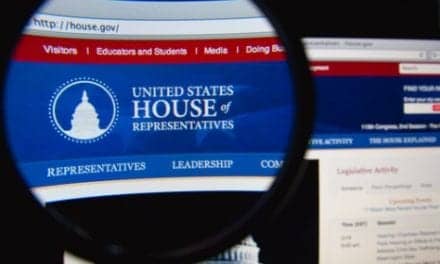The US Food and Drug Administration (FDA) has issued “a landmark proposal intended to improve access to and reduce the cost of hearing aid technology for millions of Americans,” according to the agency’s press release. The agency proposed a rule to establish a new category of over-the-counter (OTC) hearing aids that, when finalized, is designed to allow hearing aids within this category to be sold directly to consumers in stores or online without a medical exam or a fitting by a hearing care professional. The proposed rule is intended to help increase competition in the market while also ensuring the safety and effectiveness of OTC and prescription hearing aids, according to the agency.
The proposed rules are to be officially published in the Federal Registry tomorrow (October 20, 2021); a PDF is available here. This is to be followed by a 90-day commentary period at https://www.regulations.gov.
To ensure patient safety, the proposed rule addresses a maximum output (volume) limit for OTC hearing aids that would prevent injuries from overamplification of sound. In addition, the proposed rule includes certain device performance and design requirements, such as distortion control limits, self-generated noise limits, latency limits (how quickly an OTC hearing aid processes, amplifies and relays a sound), the range of frequencies that the device can reproduce and how uniformly the OTC hearing aid amplifies different frequencies over its bandwidth, as well as a requirement to limit the insertion depth of the device. The proposed rule also includes labeling requirements for OTC hearing aids.
To coincide with the proposed rule, the FDA also issued an updated draft guidance, Regulatory Requirements for Hearing Aid Devices and Personal Sound Amplification Products (PSAPs). The draft guidance describes hearing aids, PSAPs, their respective intended uses and regulatory requirements that apply to both types of products. The draft guidance is intended to provide further clarification regarding the differences between PSAPs, which help people with normal hearing amplify sounds, and hearing aids and to inform consumers that PSAPs are not considered OTC alternatives for hearing aids.
The proposed rule would also amend existing rules that apply to hearing aids for consistency with the new OTC category, repeal the conditions for sale for hearing aids and address state regulation of hearing aids. The OTC category, when finalized, would apply to certain air-conduction hearing aids intended for adults age 18 and older who have perceived mild to moderate hearing loss. Hearing aids for severe hearing loss or for users younger than age 18 would be prescription devices.
Look for more detailed information and upcoming analysis on the Hearing Review website.
Today’s action follows President Biden’s July Executive Order on Promoting Competition in the American Economy, which called for the FDA to take steps to allow OTC hearing aids. This effort also builds on the Biden-Harris Administration’s goal of expanding access to high-quality health care and lowering medical care costs for the American public.
“Reducing health care costs for everyone in America is a top priority,” said Health and Human Services Secretary Xavier Becerra. “Today’s move by FDA takes us one step closer to the goal of making hearing aids more accessible and affordable for the tens of millions of people who experience mild to moderate hearing loss.”
Approximately 15% of American adults (37.5 million) age 18 and over report some trouble hearing. However, despite the high prevalence and public health impact of hearing loss, only about one-fifth of people who could benefit from a hearing aid use one. The proposed rule aims to address barriers to use, including cost, access, social stigma related to hearing loss, perceived value of the devices or certain state and federal regulations.
Many hearing aids can be expensive. The rule aims to facilitate innovation and increase competition by lowering the barriers to entry for new hearing aid manufacturers. Under the proposed rule, hearing aids would be sold over the counter in more traditional brick-and-mortar retail stores or online (rather than doctors’ offices or specialty retail outlets) and will likely be less expensive than those currently sold – giving consumers greater choice at lower prices.
The proposed rule implements a key provision of the Over-the-Counter Hearing Aid Act, as enacted in the FDA Reauthorization Act of 2017. President Biden’s Executive Order on Competition included a timeline for action, and the FDA has now issued the proposed rule ahead of that schedule.
“Hearing loss has a profound impact on daily communication, social interaction and the overall health and quality of life for millions of Americans,” said Acting FDA Commissioner Janet Woodcock, MD. “The FDA’s proposed rule represents a significant step toward helping ensure that adults with mild to moderate hearing loss have improved access to more affordable and innovative product options. The new regulatory category will provide the public with greater control over their hearing aid purchasing decisions at stores nationwide or online without the need for a professional hearing exam, fitting adjustment or a prescription.”
Source: FDA



.gif)


You mentioned a video about several people telling their stories on how they lost their hearing but there is no link to watch. Can you please tell me how to access? I’d like my own teens to watch as I also work in the hearing industry and tell them all the time to protect themselves from loud noise. Thanks
I think this comment may have ended up in the wrong spot. Ellie, if you tell me which video you’re referring to, I’ll run it down for you. Thanks.